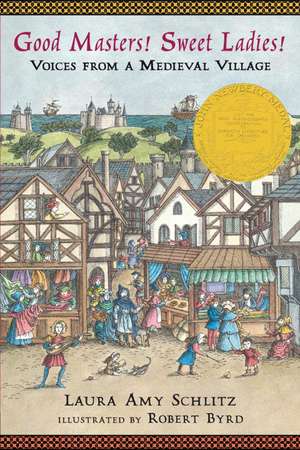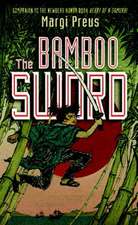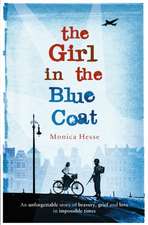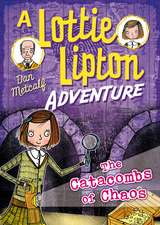Good Masters! Sweet Ladies!: Voices from a Medieval Village
Autor Laura Amy Schlitz Ilustrat de Robert Byrden Limba Engleză Paperback – 31 aug 2011 – vârsta de la 10 până la 14 ani
Vezi toate premiile Carte premiată
Parents Choice Award (Fall) (1998-2007) (2007), Newbery Medal (2008), Dorothy Canfield Fisher Children's Book Award (2009)
Maidens, monks, and millers’ sons — in these pages, readers will meet them all. There’s Hugo, the lord’s nephew, forced to prove his manhood by hunting a wild boar; sharp-tongued Nelly, who supports her family by selling live eels; and the peasant’s daughter, Mogg, who gets a clever lesson in how to save a cow from a greedy landlord. There’s also mud-slinging Barbary (and her noble victim); Jack, the compassionate half-wit; Alice, the singing shepherdess; and many more. With a deep appreciation for the period and a grand affection for both characters and audience, Laura Amy Schlitz creates twenty-two riveting portraits and linguistic gems equally suited to silent reading or performance. Illustrated with pen-and-ink drawings by Robert Byrd — inspired by the Munich-Nuremberg manuscript, an illuminated poem from thirteenth-century Germany — this witty, historically accurate, and utterly human collection forms an exquisite bridge to the people and places of medieval England.
From the Hardcover edition.
| Toate formatele și edițiile | Preț | Express |
|---|---|---|
| Paperback (2) | 43.90 lei 3-5 săpt. | |
| Candlewick Press (MA) – 31 aug 2011 | 43.90 lei 3-5 săpt. | |
| Candlewick Press (MA) – 30 noi 2008 | 76.89 lei 3-5 săpt. |
Preț: 43.90 lei
Nou
Puncte Express: 66
Preț estimativ în valută:
8.40€ • 8.79$ • 6.99£
8.40€ • 8.79$ • 6.99£
Carte disponibilă
Livrare economică 10-24 martie
Preluare comenzi: 021 569.72.76
Specificații
ISBN-13: 9780763650940
ISBN-10: 0763650943
Pagini: 95
Ilustrații: 1-COLOR
Dimensiuni: 161 x 230 x 8 mm
Greutate: 0.13 kg
Ediția:2
Editura: Candlewick Press (MA)
ISBN-10: 0763650943
Pagini: 95
Ilustrații: 1-COLOR
Dimensiuni: 161 x 230 x 8 mm
Greutate: 0.13 kg
Ediția:2
Editura: Candlewick Press (MA)
Notă biografică
Laura Amy Schlitz is the author of THE HERO SCHLIEMANN: THE DREAMER WHO DUG FOR TROY and A DROWNED MAIDEN'S HAIR. She wrote the pieces in GOOD MASTERS! SWEET LADIES! for students at the Park School in Baltimore, where she works as a librarian. She has also worked as a storyteller, a costumer, an actress, and a playwright; her plays for young people have been produced in theaters all over the country. Laura Amy Schlitz lives in Baltimore.
Robert Byrd teaches children’s book illustration at the University of the Arts in Philadelphia. He is the author-illustrator of many books, including LEONARDO: BEAUTIFUL DREAMER; FINN MACCOUL AND HIS FEARLESS WIFE; and THE HERO AND THE MINOTAUR. He also illustrated Laura Amy Schlitz’s first book for children, THE HERO SCHLIEMANN, about the life of a nineteenth-century amateur archaeologist. Robert Byrd lives in Haddonfield, New Jersey.
From the Hardcover edition.
Robert Byrd teaches children’s book illustration at the University of the Arts in Philadelphia. He is the author-illustrator of many books, including LEONARDO: BEAUTIFUL DREAMER; FINN MACCOUL AND HIS FEARLESS WIFE; and THE HERO AND THE MINOTAUR. He also illustrated Laura Amy Schlitz’s first book for children, THE HERO SCHLIEMANN, about the life of a nineteenth-century amateur archaeologist. Robert Byrd lives in Haddonfield, New Jersey.
From the Hardcover edition.
Extras
NELLY THE SNIGGLER
I was born lucky. Nay, not born lucky, as you shall hear - but lucky soon after and ever after. My father and mother were starving poor, and dreaded another mouth to feed. When my father saw I was a girl-child, he took me up to drown in a bucket of water.
But here's the lucky part - and 'tis pure sooth. I didn't drown, babe though I was. I took hold with my wee fingers and held to the side of the bucket (1). And my mother wept, and my father's heart went soft, and he could no more drown me than himself-and they named me Nelly, for Queen Eleanor (2).
And their luck changed. First my uncle died of the scurvy and we got his pigs. Then the nuns at the abbey hired us to catch eels - and we've been sniggling ever since (3).
Do you see these eels? Fresher than the day they were born - and fat as priests. I know where their burrows are, and I know what they like for bait. And as for frogs - I've been catching frogs since I was two years old; there's not a frog in Christendom jumps fast enough to get away from me - and I can swim as fast as any boy - and better than Drogo, the tanner!
Do you know Drogo, the tanner's apprentice? I can't point him out to you, because he'd see me. He's always staring at me. Many's the time I've seen him peel off his hose to show me his legs - as if every frog I've ever put into a pie didn't have better legs than his!
We had a brawl last summer. I said 'twas the fault of the tanners that the river stank, and he said 'twas the fishmongers. Which is pure folly: 'tis surely God's will that fish should rot in the water, but the beasts should rot on the land. I put out my tongue, and by Saint Peter (4), he pushed me right off the wharf into the water. And then, poor fool, he thought I would drown - I, who couldn't drown when I was three hours old! He splashed in after me, and I dove down deep and grabbed his foot - and I ducked him three times, and serve him right. Only then I had to drag him out of the water - because it turns out, he can't swim! So I suppose you could say I saved his life.
He's never forgotten it. He watches me all the time - and shows off his legs. But I don't speak to him; I want nothing to do with him and his legs. I pretend I don't even know his name - and every day I walk past the tannery, just so he can see me not looking his way.
****************
1. Newborn babies have strong fngers and an instinct to hold on. The story about a baby catching hold of the bucket in which her father meant to drown her is true. The original plucky newborn was a woman named Liafburga, who lived around 700 a.d. (G.G. Coulton, The Medieval Village)
2 Queen Eleanor of Aquitaine (1122-1204) was a legend in her own time.
3 A sniggler is a person who catches eels by dangling bait into their holes in the riverbank. Frogs and eels were desirable sources of protein during the Middle Ages.
4 Saint Peter was the patron saint of fishermen.
DROGO, THE TANNER'S APPRENTICE
I don't mind the stink-
I grew up with it, being the son of a butcher.
Dead things stink; that's the will of God,
and tanners (1) make good money.
I don't mind the work-
digging the pits
grinding the oak bark
smearing the hides with dung.
Work is work. I like
bread in my belly
and ale in my cup.
I do mind the jeering
of Nelly the sniggler-
her tongue could scrape the hair off a hide!
And I mind the townsmen
nattering on,
saying we foul the waters (2).
By Saint Bartholomew (3), think'st thou
a man can make leather without filth?
Alum, lime, oak galls, urine,
ashes, tallow, and stale beer-
these are the tools of my trade.
Would you warm your hands in leather gloves?
Saddle or bridle your horse?
Do you dance to the sound of the bagpipes,
or lace up the cords of your armor?
What about the bellows, heating the forge?
It's leather - stinking leather!
Do you want good shoes or don't you?
So be it.
Now, let me get on with my scraper and dung.
You hold your nostrils - and hold your tongue.
****************
1 A tanner is someone who cures animal hides to make leather.
2 Polluted waters are not just a contemporary problem. Almost everything that tanners used was poisonous. People like fishermen and brewers, who needed the rivers to be clean, were always at war with the tanners.
3 Saint Bartholomew, who was skinned to death, was the patron saint of tanners. The logic of this is macabre, but not unique. Saint Sebastian, who was shot full of arrows, is the patron saint of archers; Saint Laurence, who was roasted alive, is the patron saint of cooks. We won't even talk about what happened to Saint Erasmus - it's too disgusting.
___________
GOOD MASTERS! SWEET LADIES! by Laura Amy Schlitz, illustrations by Robert Byrd. Text copyright (c) 2007 by Laura Amy Schlitz. Published by Candlewick Press, Inc., Cambridge, MA.
I was born lucky. Nay, not born lucky, as you shall hear - but lucky soon after and ever after. My father and mother were starving poor, and dreaded another mouth to feed. When my father saw I was a girl-child, he took me up to drown in a bucket of water.
But here's the lucky part - and 'tis pure sooth. I didn't drown, babe though I was. I took hold with my wee fingers and held to the side of the bucket (1). And my mother wept, and my father's heart went soft, and he could no more drown me than himself-and they named me Nelly, for Queen Eleanor (2).
And their luck changed. First my uncle died of the scurvy and we got his pigs. Then the nuns at the abbey hired us to catch eels - and we've been sniggling ever since (3).
Do you see these eels? Fresher than the day they were born - and fat as priests. I know where their burrows are, and I know what they like for bait. And as for frogs - I've been catching frogs since I was two years old; there's not a frog in Christendom jumps fast enough to get away from me - and I can swim as fast as any boy - and better than Drogo, the tanner!
Do you know Drogo, the tanner's apprentice? I can't point him out to you, because he'd see me. He's always staring at me. Many's the time I've seen him peel off his hose to show me his legs - as if every frog I've ever put into a pie didn't have better legs than his!
We had a brawl last summer. I said 'twas the fault of the tanners that the river stank, and he said 'twas the fishmongers. Which is pure folly: 'tis surely God's will that fish should rot in the water, but the beasts should rot on the land. I put out my tongue, and by Saint Peter (4), he pushed me right off the wharf into the water. And then, poor fool, he thought I would drown - I, who couldn't drown when I was three hours old! He splashed in after me, and I dove down deep and grabbed his foot - and I ducked him three times, and serve him right. Only then I had to drag him out of the water - because it turns out, he can't swim! So I suppose you could say I saved his life.
He's never forgotten it. He watches me all the time - and shows off his legs. But I don't speak to him; I want nothing to do with him and his legs. I pretend I don't even know his name - and every day I walk past the tannery, just so he can see me not looking his way.
****************
1. Newborn babies have strong fngers and an instinct to hold on. The story about a baby catching hold of the bucket in which her father meant to drown her is true. The original plucky newborn was a woman named Liafburga, who lived around 700 a.d. (G.G. Coulton, The Medieval Village)
2 Queen Eleanor of Aquitaine (1122-1204) was a legend in her own time.
3 A sniggler is a person who catches eels by dangling bait into their holes in the riverbank. Frogs and eels were desirable sources of protein during the Middle Ages.
4 Saint Peter was the patron saint of fishermen.
DROGO, THE TANNER'S APPRENTICE
I don't mind the stink-
I grew up with it, being the son of a butcher.
Dead things stink; that's the will of God,
and tanners (1) make good money.
I don't mind the work-
digging the pits
grinding the oak bark
smearing the hides with dung.
Work is work. I like
bread in my belly
and ale in my cup.
I do mind the jeering
of Nelly the sniggler-
her tongue could scrape the hair off a hide!
And I mind the townsmen
nattering on,
saying we foul the waters (2).
By Saint Bartholomew (3), think'st thou
a man can make leather without filth?
Alum, lime, oak galls, urine,
ashes, tallow, and stale beer-
these are the tools of my trade.
Would you warm your hands in leather gloves?
Saddle or bridle your horse?
Do you dance to the sound of the bagpipes,
or lace up the cords of your armor?
What about the bellows, heating the forge?
It's leather - stinking leather!
Do you want good shoes or don't you?
So be it.
Now, let me get on with my scraper and dung.
You hold your nostrils - and hold your tongue.
****************
1 A tanner is someone who cures animal hides to make leather.
2 Polluted waters are not just a contemporary problem. Almost everything that tanners used was poisonous. People like fishermen and brewers, who needed the rivers to be clean, were always at war with the tanners.
3 Saint Bartholomew, who was skinned to death, was the patron saint of tanners. The logic of this is macabre, but not unique. Saint Sebastian, who was shot full of arrows, is the patron saint of archers; Saint Laurence, who was roasted alive, is the patron saint of cooks. We won't even talk about what happened to Saint Erasmus - it's too disgusting.
___________
GOOD MASTERS! SWEET LADIES! by Laura Amy Schlitz, illustrations by Robert Byrd. Text copyright (c) 2007 by Laura Amy Schlitz. Published by Candlewick Press, Inc., Cambridge, MA.
Recenzii
Winner of the 2008 Newbery Medal
"Brilliant in every way." – Kirkus Reviews (starred review)
"A vivid, convincing portrait of medieval adolescence." – Bulletin of the Center for Children’s Books (starred review)
"Bolstered by lively asides and unobtrusive notes, and illuminated by Byrd's stunningly atmospheric watercolors, [the monologues] bring to life a prototypical English village in 1255." – Publishers Weekly (starred review)
"Schlitz gives teachers a refreshing option for enhancing the study of the European Middle Ages: here are seventeen monologues and two dialogues that collectively create a portrait of life on an English manor in 1255." – The Horn Book
"Brilliant in every way." – Kirkus Reviews (starred review)
"A vivid, convincing portrait of medieval adolescence." – Bulletin of the Center for Children’s Books (starred review)
"Bolstered by lively asides and unobtrusive notes, and illuminated by Byrd's stunningly atmospheric watercolors, [the monologues] bring to life a prototypical English village in 1255." – Publishers Weekly (starred review)
"Schlitz gives teachers a refreshing option for enhancing the study of the European Middle Ages: here are seventeen monologues and two dialogues that collectively create a portrait of life on an English manor in 1255." – The Horn Book
Descriere
Step back to an English village in 1255, where life plays out in dramatic vignettes illuminating 22 unforgettable characters. Maidens, monks, and millers' sons--in these pages, readers will meet them all. Illustrations.
Premii
- Parents Choice Award (Fall) (1998-2007) Winner, 2007
- Newbery Medal Winner, 2008
- Dorothy Canfield Fisher Children's Book Award Nominee, 2009
- Capitol Choices: Noteworthy Books for Children and Teens Recommended, 2008
- Cybils Finalist, 2007











